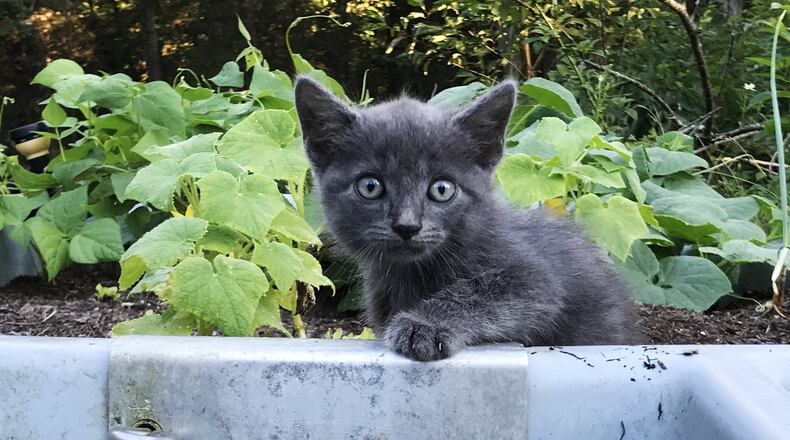Residents told the city council that the new rules, which would tentatively go into effect on March 1, 2019, would only punish those are trying to feed and help stray animals in their communities. City Council will consider the ordinance and possibly vote on it at its Jan. 8 meeting.
MORE: Middletown man admits to killing cats, storing bodies in his freezer
Nearly a dozen residents questioned various provisions of the proposed updated ordinance that include:
- Requiring all dogs, cats, and other companion animals to have proper identification so the city can identify who the owner is. This would include a collar and registration tag or a microchip and eartag with owner information to a national registration database.
- Prohibiting keepers from allowing their dog, cat or other animal to become a public nuisance.
- Limiting the number of household pets or dogs, cats, or other animals from creating a nuisance or be contrary to appropriate health and sanitary conditions.
- Prohibiting people from knowingly or recklessly leaving food or any other type of feed outdoors unattended that would attract animals at large.
- Mandating that keepers maintain their animals on their property, so they don't stray through neighborhoods.
- Mandating that keepers control their animals in their complete care at all times, whether on a leash or by other means.
Michael Hobbs of Sherman Avenue said he’s had close to 400 cats spayed or neutered. He told council that in the 1950s, police would come to a house, put the cats in a burlap sack and toss them into the (Great Miami) river.
“I think this has been blown way out of proportion,” he said.
Another Sherman Avenue resident, Amanda Schuster said she was disappointed with provisions to criminalize nuisance animals and penalize good Samaritans.
“This is a gross overreach of government authority for a city to decide how a person feeds cats,” she said.
Charlotte Whitehall, a Butler County resident who has trapped cats for the past 10 years, said after posting information about this proposed ordinance on social media, 75 percent of the comments were negative against the proposal.
“This will make the problem worse,” she said. “The proposed ordinance prohibits feeding cats. A man can set a cat on fire and get probation but you could go to jail if you feed a cat.”
Ruth Mayfield of Heinkel Road said there were 55 cats in the neighborhood and has had 35 cats spayed or neutered. She said the city needs to take another look at the proposed ordinance.
Missy White of Moorman Place said the cats help keep the rodent population down “but tethering a cat is impossible and dangerous.” She said “it’s just a death sentence to tether animals.”
City Manager Doug Adkins told the Journal-News that there are thousands of stray cats throughout the city which is the result of not having an animal control officer for the past several years. The city budgeted funding for an animal control officer in 2018 who is assigned to the police department. That person started working in mid-July.
“When the city pulls resources, good-intentioned people step in,” he said. “This is a policy issue. We’ve looked at other communities. This is the best solution we have. It’s not an ideal situation but it’s our best attempt to control the situation.”
Adkins said officials knew people would be upset.
Since the city eliminated the animal control officer position in 2011, residents have stepped up and purchased food and covered the cost of spaying and neutering cats as the city was not addressing the issue.
MORE: First time in 7 years, Middletown adds humane officer
In a note to City Council this week, Adkins said city staff did pretty extensive research on the animal control ordinances and provisions that have been challenged and upheld by Ohio courts.
“There are actually much stricter animal control ordinances on the books that have been challenged in Ohio courts and upheld as a legitimate public health and safety issue,” he said. “We believe this ordinance will help and will also stand up to legal scrutiny.”
About the Author

